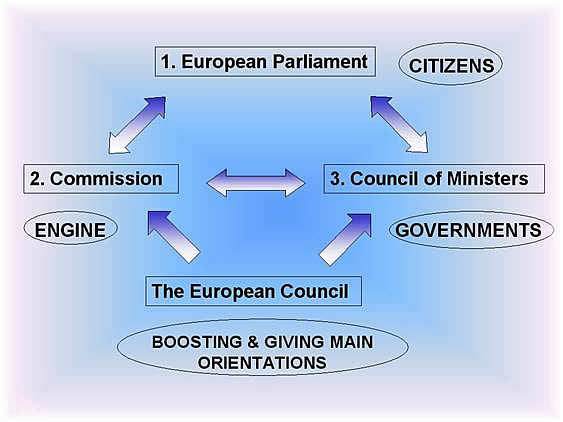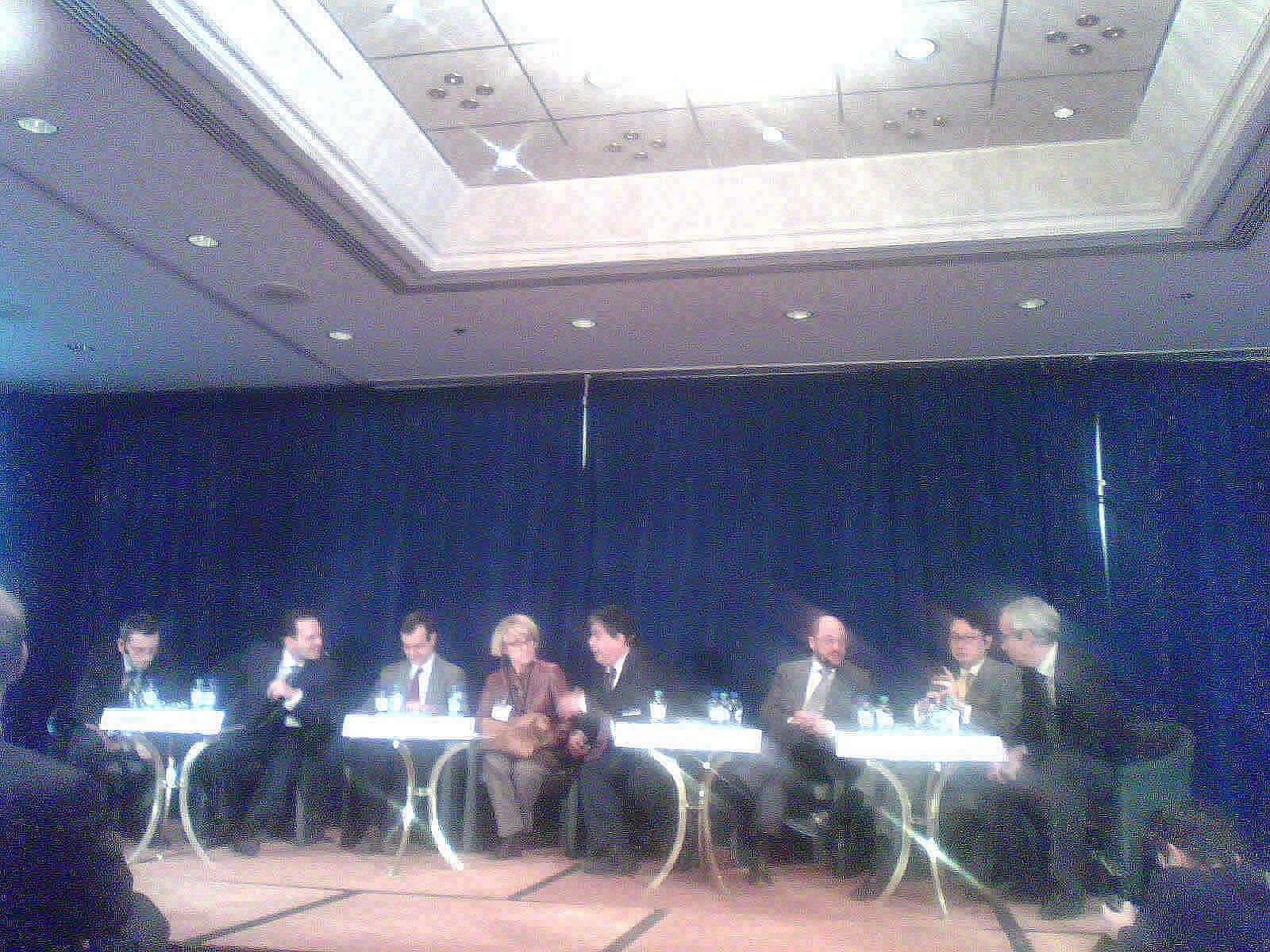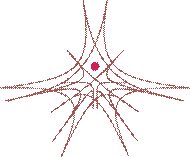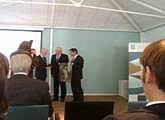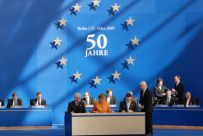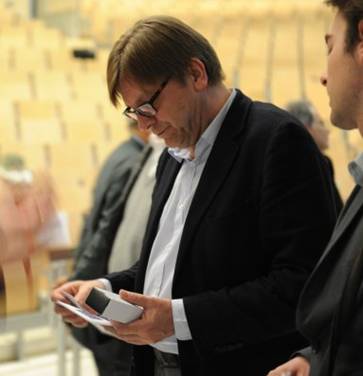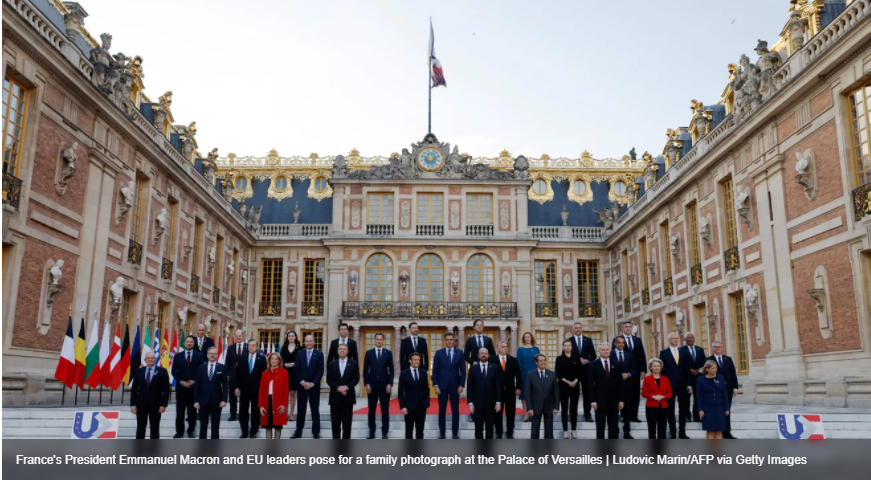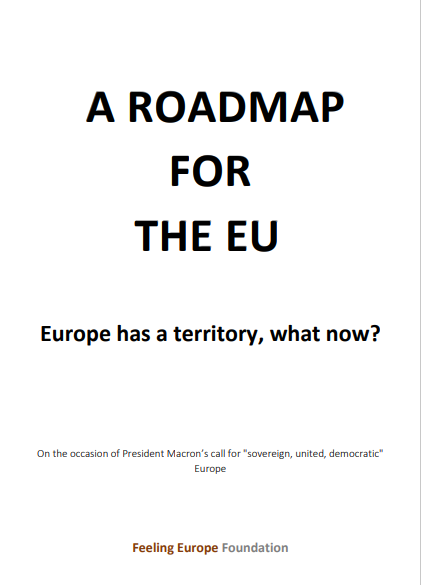Kishore Mahbubani grew up in Singapore as the son of impoverished Indian Hindus who had fled the province of Sindh during India's bloody partition in 1947. "When I was growing up in Singapore, the world looked up to Europe as the most advanced and optimistic societies that the rest of the world should try to emulate. Europe was an inspiration throughout my young life - even into a mature age. Now, surprisingly, Europe has become a pessimistic continent. The whole world is amazed at how Europe, which has been so successful for the last 200 years, has now lost its way, has lost its self-confidence, and does not seem to believe that it has a great future. It's a fundamental shift in the world, and the rest of the world is amazed at how and why Europe allowed this to happen," says the analyst, diplomat, and strategist, who attributes this historical trend to the lack of dynamic leaders in Europe and the loss of the ability to think and act strategically.
"It is clear that the democracies in Europe are not working in a very fundamental way, because people do not feel that their lives will improve. I must stress that I speak as a friend of Europe and that we in Asia only want Europe to prosper. But the world has changed fundamentally, and Europe needs to make some strategic and structural adjustments."
Can you see it happening?
"This will only happen if Europe wakes up and adapts to the new global landscape. In the 1960s, Europe's share of global gross domestic product was 30 percent. Now it's 20 percent. In 2050, it may be 10 percent. It is important to recognise that Europe's population is becoming relatively smaller. When your share of the world economy shrinks, you have to learn to adapt, adjust, and do things differently." "Let me give you an example: Since the 1940s, there has been a tradition for the head of the IMF to be a European and the head of the World Bank an American. It made perfect sense when Europe and America dominated the world. In the 1960s, none of the world's top 5 economies were Asian. Now three out of five are from Asia: China, Japan and India."
Power swings to Asia
"Power is swinging to Asia, so it would be wiser for Europe to say: ‘Now Asia accounts for a larger share of the global economy than Europe, so why don't we let Asia run the IMF?’ It makes sense. It is wiser to maintain the global infrastructure created by the West and then let others manage it. But doing so will require a long-term strategic mindset. It should also be in Europe's interest to strengthen the multilateral order and to cooperate with China. But this will require Europeans to explain to the Americans that they do not agree with the United States that the global market order must be weakened. It takes political courage on the part of Europe to oppose the United States. Europe does not have that courage.
There are no longer strong leaders who say the things that should be said out loud," he says. He believes that weak European leaders do not dare to present the people with reality: "No one is honest about Europe's real challenges. Everyone just says that life is wonderful. Europe lives in a garden surrounded by a jungle. Europeans have a quality of life that is much better than that of others. It's true. But it is also true that they live with a great deal of uncertainty about the future. They should try to ensure that the jungle around them is improved and developed. Europe must have a policy that points to the future and, for example, engage more with Asia and Africa," says Mahbubani, and points out:
"It is quite clear that Europe's biggest long-term challenge does not come from Russia. It comes from Africa. In 1950, Europe's population was twice that of Africa. Now Africa's is 2.5 times larger than Europe's. By the year 2100, Africa's population will be 10 times larger than Europe's. Europe will have to deal with a massive demographic explosion in Africa. If Europe does not export jobs to Africa, Africa will export Africans to Europe.
But in order to create jobs in Africa, Europe must cooperate with other investors in Africa. And the number one investor is China. Europe should work with China to stabilise Africa. But instead, many Europeans want to follow the US policy of containing China. If the EU and the US succeed in containing China, then Europe will suffer - but the US will not."
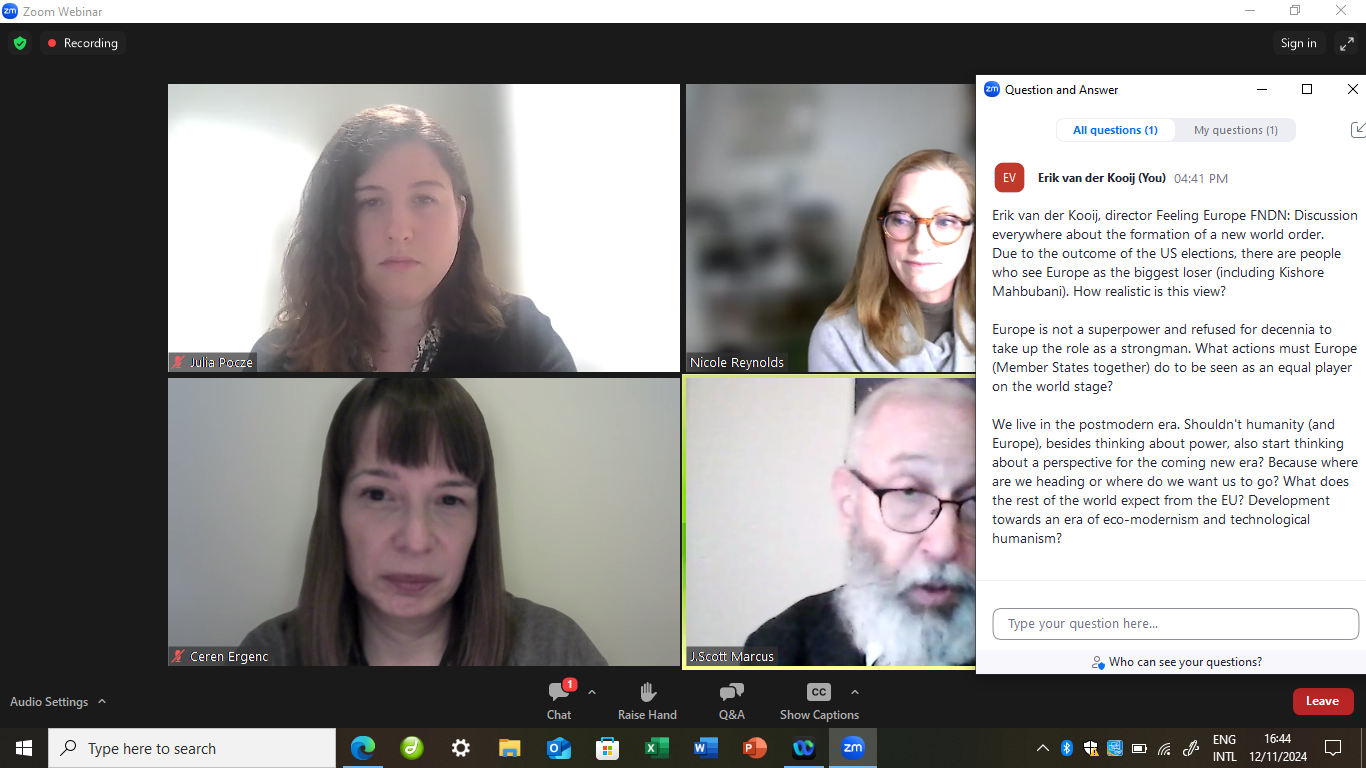 The US is about to hold hugely important elections. A candidate who has repeatedly praised dictators and demonstrated an affinity for authoritarianism has serious prospects of winning. If he prevails, the global role of the US is likely to profoundly change and America may be on its way to becoming an illiberal democracy. How this might play out in detail remains to be seen, as much depends on which party will control Congress.
The US is about to hold hugely important elections. A candidate who has repeatedly praised dictators and demonstrated an affinity for authoritarianism has serious prospects of winning. If he prevails, the global role of the US is likely to profoundly change and America may be on its way to becoming an illiberal democracy. How this might play out in detail remains to be seen, as much depends on which party will control Congress.
The EU also has experience with illiberal democracies, and recent elections have further strengthened illiberal forces from the far-right. Threats such as these on both sides of the Atlantic could weaken democracy globally, posing a threat to the liberal world order that has held since the end of World War II.
Whatever the outcome of the US elections, we will examine the implications for the EU going forward. Can the EU serve as a global champion of democracy if the US retreats? Can the EU increase its presence on the world stage and step in to fill a possible void left by the US? How would the EU respond to new security threats by authoritarian regimes emboldened by America’s inward shift?
The US elections and an uncertain future: implications for the EU (recording)

